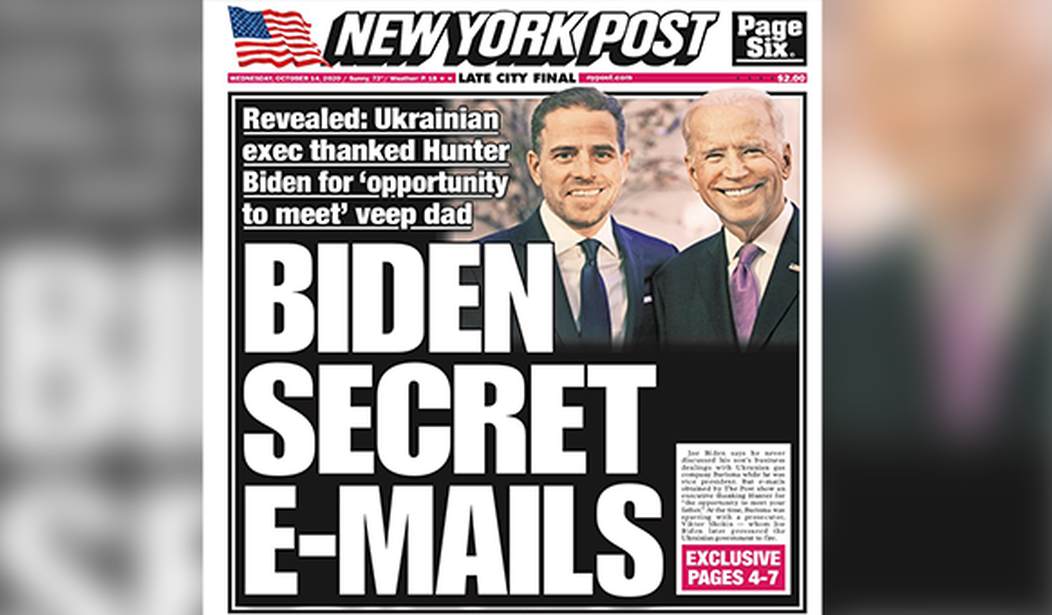In years past, when journalism was trusted by consumers much more than it is today, The New York Post might have been nominated for a Pulitzer Prize for its reporting about Hunter Biden's laptop. New Twitter owner Elon Musk might have also won awards for his revelations of collusion between Twitter, intelligence officials who claimed the story was Russian disinformation, and leading Democrats who were in touch with social media owners to suppress stories that might have harmed President Biden's re-election.
There is a snobbery among the journalistic elite which distrusts information that doesn't come from certain organs, like The New York Times, The Washington Post and major broadcast media. One of many examples occurred prior to the 2020 election when "60 Minutes" reporter Lesley Stahl interviewed President Trump. The president mentioned the Biden laptop and Stahl cut him off, twice saying "it can't be verified."
A few days ago and long after even some major media reluctantly "verified" the laptop and its contents, even CBS acknowledged its existence.
All of this had implications for the outcome of the 2020 presidential election and the continued decline of public trust in the major media.
As for the election, the Post reported, "Nearly four of five Americans who've been following the Hunter Biden laptop scandal believe that 'truthful' coverage would have changed the outcome of the 2020 presidential election, according to a new poll. A similar percentage also said they're convinced that information on the computer is real, with just 11 percent saying they thought it was 'created by Russia,' according to the survey conducted by the New Jersey-based Technometrica Institute of Policy and Politics."
One might think that a story big enough to influence the outcome of a presidential election and the future of the country might motivate journalists to do their job, but it appears the media's greatest power is to ignore stories that don't fit their largely liberal worldview, or twist stories to reflect that worldview.
Recommended
Have any of those responsible for covering up the laptop story apologized for failing to do their job and verify the story when it mattered? Nope. Have the more than 50 former senior intelligence officials who signed a letter saying the laptop story "has all the classic earmarks of a Russian information operation" issued a corrective statement, admitting their error? Again, no.
Back to the Pew Center surveys of the public's growing distrust of the media. American adults under 30 were found to trust information from social media almost as much as they do from national news outlets. This is dangerous, because an accurately informed public by trustworthy journalists is critical to maintaining our constitutional republic.
The Pew Research Center has been reporting on public attitudes about the press for some time and the trend is not good for the industry. In a survey last January, Pew reported, "The declining public trust in the news media and polarization of news audiences have profound effects on civic life."
Pew also found that American journalists differ from the public in their views when it comes to reporting more than one side of an issue: "55 percent of journalists surveyed say that every side does not always deserve equal coverage in the news. Twenty-two percent of Americans overall say the same." Why should journalists make these decisions?
Yes, there is a tendency with so many sources of information for people to go to those places that simply reinforce what they already believe. This is why good and trustworthy journalism is so important.
If "democracy dies in darkness" - the slogan of The Washington Post - so does journalism if much of the major media turn off the lights when it comes to accurate and fair reporting.
























Join the conversation as a VIP Member